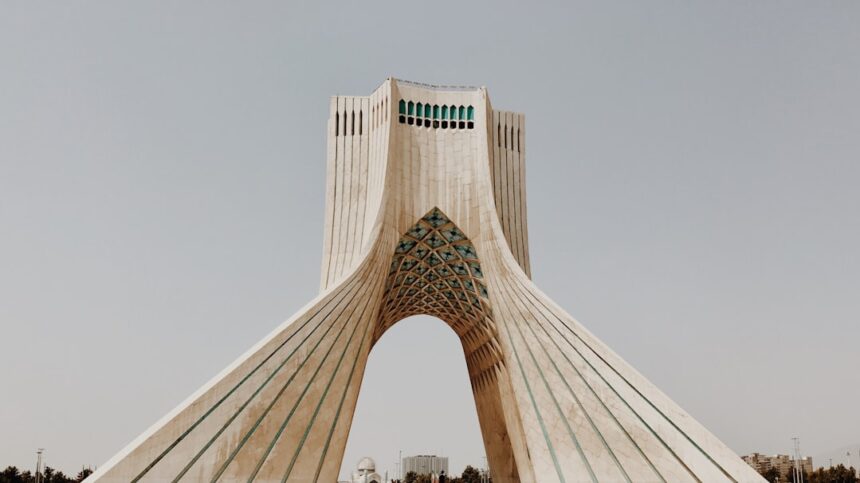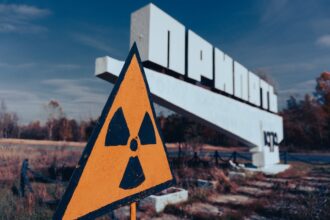The release of hostages has long been a pivotal moment in international relations, often serving as a catalyst for broader discussions and negotiations. In recent events, the release of several individuals held captive by militant groups has sparked a wave of relief and celebration among their families and communities. These moments are not merely personal victories; they resonate on a global scale, highlighting the complexities of diplomacy and the intricate web of relationships between nations.
The emotional weight of such releases cannot be overstated, as they symbolize hope and the potential for reconciliation in a world often marred by conflict. However, the circumstances surrounding these releases are rarely straightforward. They often involve intricate negotiations, sometimes facilitated by third-party nations or organizations.
The motivations behind these negotiations can vary widely, from humanitarian concerns to strategic political interests. In many cases, the release of hostages is accompanied by demands or concessions that can further complicate international relations. As nations navigate these treacherous waters, the implications of each decision can reverberate far beyond the immediate situation, influencing future diplomatic engagements and shaping the geopolitical landscape.
Key Takeaways
- Hostage release: The safe return of the hostages was a relief for their families and a positive development for international relations.
- International relations: The hostage release has the potential to improve diplomatic relations between the involved countries.
- Economic impact: The hostage release may have positive economic implications for the countries involved and the global economy.
- Political fallout: The hostage release could have political ramifications for the leaders and governments involved.
- Public opinion: The public’s perception of the hostage release will likely influence future actions and decisions by the governments.
International Relations
International relations are inherently complex, characterized by a delicate balance of power, interests, and ideologies. The recent hostage release has underscored the importance of diplomacy in resolving conflicts and fostering cooperation among nations. In an era where global challenges such as terrorism, climate change, and economic instability require collaborative solutions, the ability to engage in constructive dialogue is more crucial than ever.
The dynamics of international relations are often influenced by historical grievances, cultural differences, and competing national interests, making the path to resolution fraught with challenges. The interplay between nations can be seen in the aftermath of hostage releases, where countries may leverage these events to strengthen alliances or exert pressure on adversaries. For instance, a successful negotiation leading to the release of hostages can enhance a nation’s standing on the world stage, showcasing its diplomatic prowess.
As nations navigate these complex relationships, they must also consider the broader implications of their actions, as each decision can have lasting effects on regional stability and global peace.
Economic Impact

The economic ramifications of hostage situations extend beyond immediate financial considerations. The release of hostages can lead to a surge in economic activity, particularly in regions that have been affected by conflict or instability. Families reunited with their loved ones often experience a renewed sense of hope, which can translate into increased consumer confidence and spending.
Additionally, businesses that may have been hesitant to invest in areas plagued by violence may reconsider their positions following a successful hostage release, viewing it as a sign of improved security and stability. On a larger scale, the economic impact can also be felt in international markets. The resolution of hostage situations can lead to shifts in trade relationships and investment patterns, as nations seek to capitalize on newfound stability.
For example, countries that have successfully negotiated hostage releases may find themselves in a stronger position to attract foreign investment or engage in trade agreements. However, the economic benefits are not always evenly distributed; regions that have been directly affected by hostage situations may experience a more pronounced recovery compared to others.
Political Fallout
| Country | Political Fallout | Impact |
|---|---|---|
| United States | Election controversy | Public trust in government |
| United Kingdom | Brexit aftermath | Economic uncertainty |
| Brazil | Corruption scandal | Social unrest |
The political fallout from hostage situations can be significant, influencing domestic and international agendas alike. Leaders who successfully negotiate the release of hostages often experience a boost in popularity, as citizens rally around their government’s ability to protect its citizens and secure their freedom. This surge in public support can translate into political capital that leaders may leverage for future initiatives or policies.
Conversely, failures in negotiation or perceived inaction can lead to public outcry and political repercussions for those in power. Moreover, the political landscape can shift dramatically in the wake of hostage releases. Political opponents may seize upon any perceived missteps or failures to criticize the ruling party, leading to increased polarization and debate within the country.
On an international level, the dynamics between nations can also change; countries that are seen as effective negotiators may gain influence, while those that struggle may find themselves isolated or facing increased scrutiny from their peers. The interplay between domestic politics and international relations is complex, with each influencing the other in profound ways.
Public Opinion
Public opinion plays a crucial role in shaping responses to hostage situations and their aftermath. The emotional weight of these events resonates deeply with individuals and communities, often leading to widespread media coverage and public discourse. Families of hostages frequently become symbols of resilience and hope, drawing attention to the human cost of conflict and the urgent need for resolution.
As stories unfold in the media, public sentiment can shift rapidly, influenced by factors such as perceived government effectiveness or the portrayal of events by journalists. In many cases, public opinion can drive political action. Citizens may demand accountability from their leaders or advocate for specific policies aimed at preventing future hostage situations.
Social media has amplified this phenomenon, allowing individuals to voice their opinions and mobilize support for causes related to hostage releases and broader humanitarian efforts. As public sentiment evolves, it can create pressure on governments to take decisive action or engage in diplomatic negotiations that align with the values and expectations of their constituents.
Repercussions on US-Iran Relations

The relationship between the United States and Iran has long been fraught with tension and mistrust, shaped by decades of geopolitical conflict and ideological differences. Hostage situations involving American citizens held in Iran have historically exacerbated these tensions, leading to calls for stronger diplomatic measures or sanctions. The recent release of hostages has opened a new chapter in this complex relationship, prompting discussions about potential avenues for dialogue and cooperation.
While some view the release as a positive step toward thawing relations between the two nations, others remain skeptical about its long-term implications. Critics argue that concessions made during negotiations could embolden Iran’s aggressive behavior or undermine U.S. interests in the region.
Conversely, proponents of engagement argue that dialogue is essential for addressing broader issues such as nuclear proliferation and regional stability. As both nations navigate this delicate balance, the repercussions of these hostage releases will likely continue to shape U.S.-Iran relations for years to come.
Humanitarian Efforts
Humanitarian efforts often play a critical role in addressing the underlying issues that lead to hostage situations. Organizations dedicated to promoting peace and security frequently engage in initiatives aimed at fostering dialogue between conflicting parties and providing support for affected communities. These efforts can take many forms, from advocating for policy changes to providing direct assistance to families impacted by violence.
In the context of hostage releases, humanitarian organizations often work behind the scenes to facilitate negotiations or provide support for families awaiting news about their loved ones. Their involvement underscores the importance of addressing not only the immediate needs of those held captive but also the broader social and economic factors that contribute to conflict. By promoting understanding and cooperation among different groups, humanitarian efforts can help create an environment conducive to lasting peace.
Diplomatic Efforts
Diplomatic efforts are essential in navigating the complexities surrounding hostage situations and their aftermath. Skilled negotiators often work tirelessly to secure the release of hostages while balancing competing interests and pressures from various stakeholders.
Successful diplomatic efforts can lead to significant breakthroughs in international relations, paving the way for future cooperation on pressing global issues. However, these negotiations are rarely straightforward; they often involve difficult compromises and concessions that can have far-reaching implications. As nations engage in diplomacy surrounding hostage releases, they must remain mindful of the potential consequences of their actions on both domestic politics and international relations.
Media Coverage
Media coverage plays a pivotal role in shaping public perception of hostage situations and their resolutions. Journalists often serve as intermediaries between families seeking answers and governments navigating complex negotiations. The portrayal of events in the media can influence public sentiment, driving support for specific policies or actions taken by governments.
In recent years, social media has transformed how news is disseminated and consumed, allowing individuals to share their perspectives on hostage situations in real time. This shift has led to increased scrutiny of government actions and greater demand for transparency in negotiations. As media coverage evolves, it continues to shape public discourse around hostage releases and their implications for international relations.
Psychological Effects
The psychological effects of hostage situations extend beyond those directly involved; they ripple through families, communities, and even nations. For hostages themselves, the trauma experienced during captivity can have lasting impacts on mental health and well-being. Reintegration into society often presents challenges as individuals grapple with feelings of isolation or anxiety stemming from their experiences.
Families awaiting news about loved ones endure immense emotional strain during hostage situations. The uncertainty surrounding their fate can lead to heightened anxiety and fear, affecting not only individual family members but also their broader social networks. As communities rally around these families during times of crisis, they often experience a collective sense of hope or despair that shapes their responses to future conflicts.
Lessons Learned
The complexities surrounding hostage situations offer valuable lessons for policymakers and diplomats alike. One key takeaway is the importance of proactive engagement; addressing underlying issues before they escalate into crises can help prevent hostage situations from arising in the first place. Additionally, fostering open lines of communication between conflicting parties is essential for building trust and facilitating dialogue.
Moreover, successful negotiations often hinge on understanding cultural nuances and historical grievances that inform each party’s perspective. By approaching these situations with empathy and a willingness to listen, negotiators can create an environment conducive to resolution. Ultimately, the lessons learned from past hostage situations underscore the need for continued commitment to diplomacy and humanitarian efforts as essential tools for fostering peace and security in an increasingly interconnected world.
The aftermath of the 444-day Iran hostage crisis had profound implications on international relations and U.S. foreign policy. The crisis not only strained diplomatic ties between the United States and Iran but also reshaped American public perception of the Middle East. For a deeper understanding of the geopolitical shifts that followed this pivotal event, you can explore a related article on the topic by visiting In The War Room. This article provides insights into the long-term effects of the crisis and how it influenced subsequent U.S. foreign policy decisions in the region.
WATCH THIS! From Tehran to Blackwater: The Real Story
FAQs
What was the 444 days Iran crisis?
The 444 days Iran crisis, also known as the Iran hostage crisis, was a diplomatic standoff between Iran and the United States. It began on November 4, 1979, when Iranian militants seized the U.S. Embassy in Tehran and held 52 American diplomats and citizens hostage for 444 days.
What was the aftermath of the 444 days Iran crisis?
The aftermath of the 444 days Iran crisis had significant political, diplomatic, and economic implications. The crisis strained relations between Iran and the United States, leading to economic sanctions and severed diplomatic ties. It also had a lasting impact on U.S. foreign policy in the Middle East.
How did the 444 days Iran crisis impact U.S.-Iran relations?
The 444 days Iran crisis severely strained relations between the United States and Iran. The crisis led to economic sanctions, severed diplomatic ties, and a deep distrust between the two countries. The effects of the crisis continue to influence U.S.-Iran relations to this day.
What were the long-term consequences of the 444 days Iran crisis?
The long-term consequences of the 444 days Iran crisis included a shift in U.S. foreign policy towards the Middle East, increased tensions between the United States and Iran, and a lasting legacy of mistrust and animosity. The crisis also had a significant impact on the Iranian government and its domestic and international policies.




